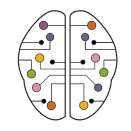Ketamine as antidepressant
How can I use ketamine as antidepressant?
Ketamine is a drug that works as a non-competitive antagonist at glutamate N-methyl-D-aspartate (NMDA) receptors. Its main use is dissociative anesthesia. It was found to have antidepressant properties in 2000. Then, subsequent studies have shown it to be effective in treating treatment-resistant depression (TRD) with a rapid clinical effect within several hours.
However, its antidepressant properties are transient. It lasts around 1 week following a single infusion and 18-19 days following repeated infusions. Ketamine has also been reported to have anti-suicidal and anti-anhedonic actions
Ketamine has been found to have a rapid antidepressant effect in several studies, with multiple meta-analyses concluding that it is effective for major depressive episodes in both unipolar and bipolar depression. While some studies suggest the effect can last up to 7 days, others suggest it may be shorter in bipolar depression. And other modalities of ketamine administration such as intranasal and oral routes have been studied. But their efficacy is less clear.
Intranasal esketamine has been approved by the FDA for major depression that has failed treatment with two or more antidepressants, with studies showing significant improvement in depression at 4 weeks compared to placebo. Ongoing trials are being conducted to track safety outcomes up to 5 years and explore the efficacy of R-ketamine.
Recent studies show that ketamine has strong antidepressant properties. Typical dosage is 0.5 mg/kg intravenous in infussion in 30-40 minutes; oral route seems also effective at that dosage (0.5 mg/kg). The effect is fast and strong but not lasting in time, it disappears in hours or days and further dosages do not reply this effect.
With actual knowledge, Ketamine may prove useful in a select group of patients but current medical knowledge looks to other treatments as the first line against depression
http://www.ncbi.nlm.nih.gov/pubmed/23661785
http://www.ncbi.nlm.nih.gov/pubmed/23805864
http://www.ncbi.nlm.nih.gov/pubmed/23825857
http://www.ncbi.nlm.nih.gov/pubmed/23893490

Thanks
Thanks for feedback
Please provide me an example on what you consider "dubious"
I share your level of appreciation for the work you've produced. The sketch you've displayed is elegant, and the content…
Somebody essentially help to make significantly articles I'd state. This is the first time I frequented your web page and…